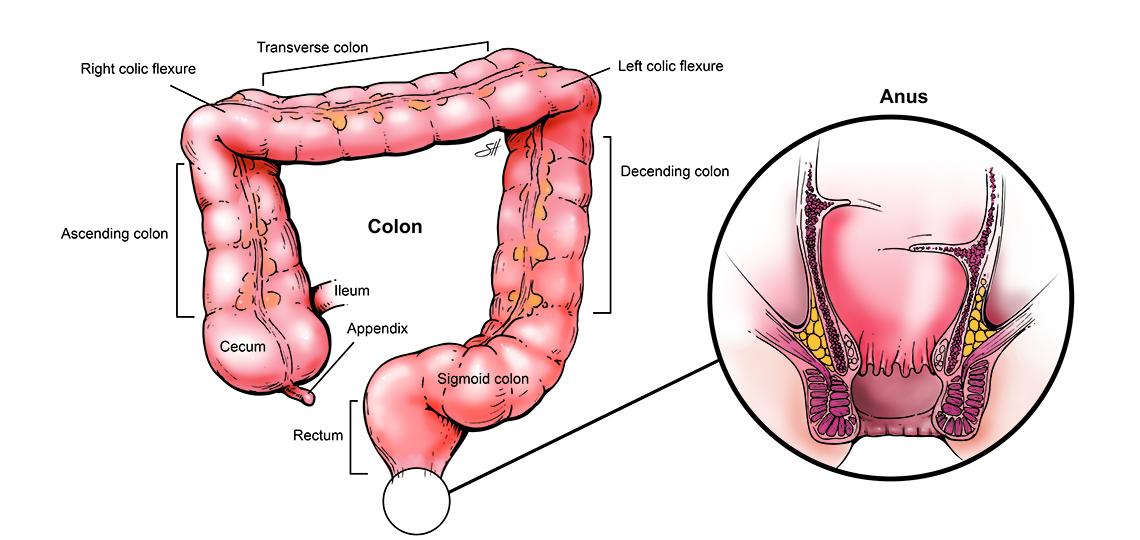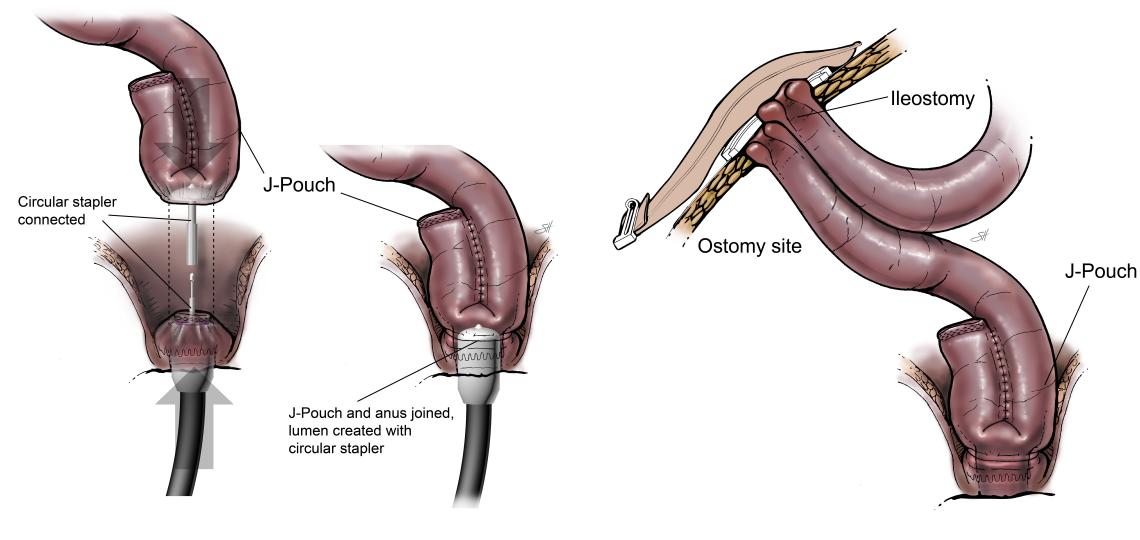What is a total proctocolectomy?
During a proctocolectomy, the large intestine (the colon) and rectum are removed, leaving the small intestine disconnected from the anus. The final segment of the small intestine is known as the ileum.
What is an ileal pouch anal anastomosis?
Once your colon and rectum are removed, your bowels will be disconnected. To establish bowel continuity, intestinal reconstruction is needed. Your surgeon will create aneo-rectum, which is a pouch or reservoir created using the ileum to simulate your rectum. The purpose of this pouch is to store stool and allow continence, similar to your former rectum. Once created, this pouch is then connected to the anus using a surgical stapler, a procedure known as ileal pouch-anal anastomosis, or J pouch. Your bowels are now back in continuity.
In order to allow the pouch to heal adequately, your surgeon will likely create a temporary ostomy or bag to divert stool contents from the neo-rectum for 2-3 months. The ostomy is also created out of the small intestine and connects to your skin. Stool will empty into a small plastic bag called an ostomy bag (or stoma appliance) that is applied to the skin around the stoma. This bag can be emptied 1-2 times per day. The stool will be looser and more liquid than before since you no longer have a colon to absorb water contents from the stool. After the 2-3 month healing period, the temporary stoma will be closed and intestinal continuity restored. Your bowel movements will now pass through your anus.
Why is a total proctocolectomy and ileostomy done?
Several situations may require a total proctocolectomy and J pouch reconstruction, most commonly Ulcerative colitis and familial adenomatous polyposis syndrome (FAP). There are many benefits to having a J pouch procedure. The procedure eliminates the need for a permanent ileostomy, and relieves the pain, discomfort, and inflammation associated with inflammatory bowel disease. It also reduces the risk of future colon cancer.
How well does a total proctocolectomy and ileostomy work?
It is normal to have 6-8 bowel movements per day with a J pouch since stools are more liquid. Some patients may also experience a component of fecal incontinence if they have a weakened anal sphincter tone to begin with. In general, a J pouch allows for intestinal continuity and avoids the need for a permanent bag, a benefit favored by many patients. Also, in patients with long-standing disease such as ulcerative colitis or hereditary syndromes that predispose to colorectal cancer such as familial adenomatous polyposis syndrome (FAP), a total proctocolectomy nearly eliminates the risk of colorectal cancer altogether. It should be noted, however, that the pouch and cuff of rectum attached to the anus will need to be surveyed with a limited colonoscopy every 1-2 years to ensure no development of polyps.
Recovery
After surgery, you will likely remain hospitalized for 2-5 days based on your progress. It can be common to experience abdominal pain or cramps. If it becomes more severe and persistent, further studies may be performed. You will be monitored for any abnormal signs/symptoms to ensure proper recovery. Generally speaking, your bowel function will return to normal in the first 1-2 days after surgery, and you will be educated on dietary restrictions and how to care for your new ostomy by our expert nursing team.








 Credit
Credit

